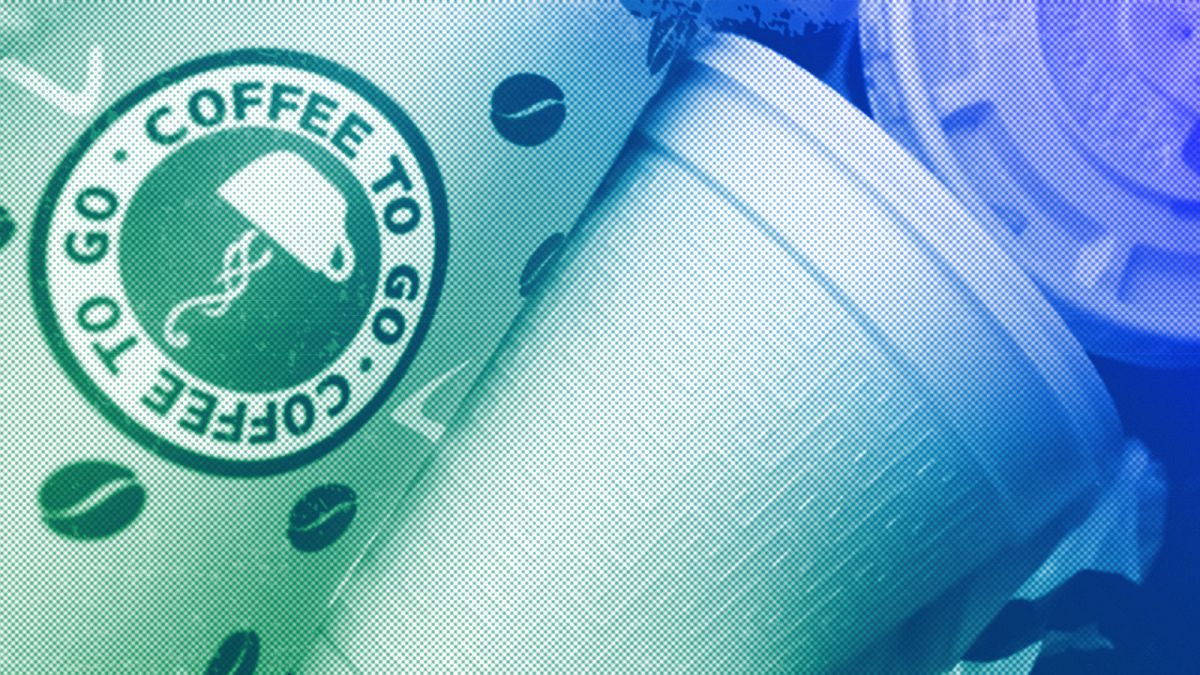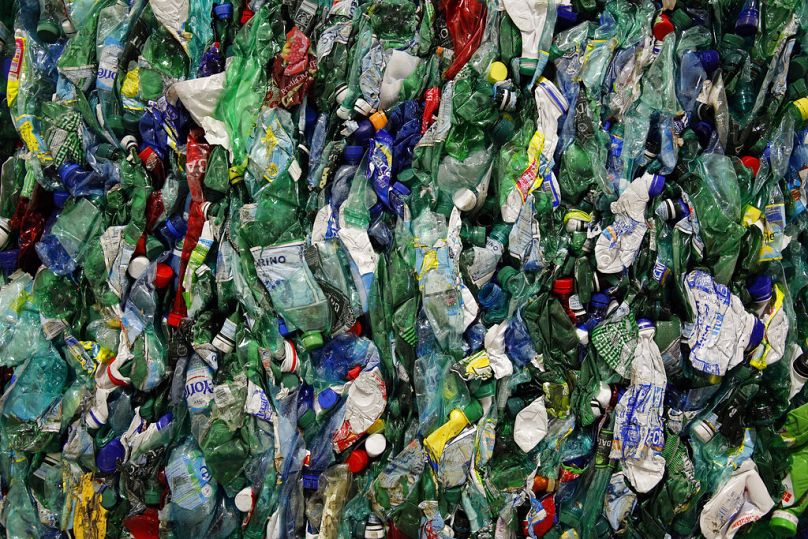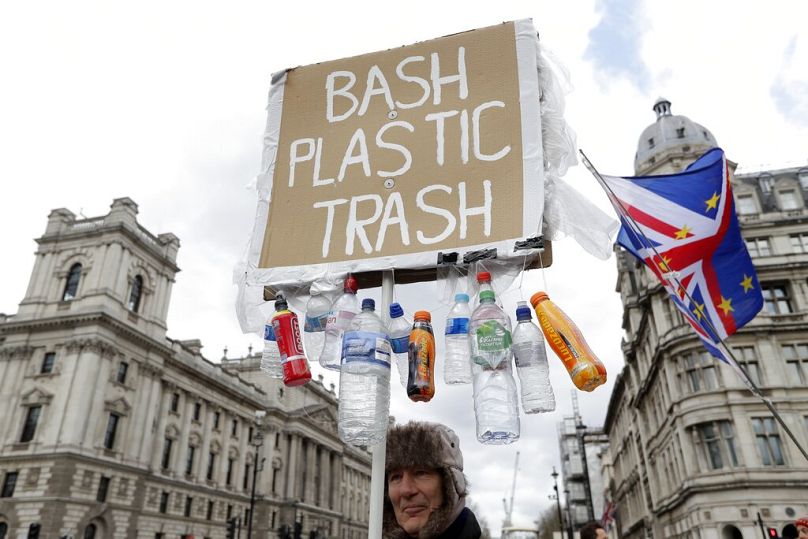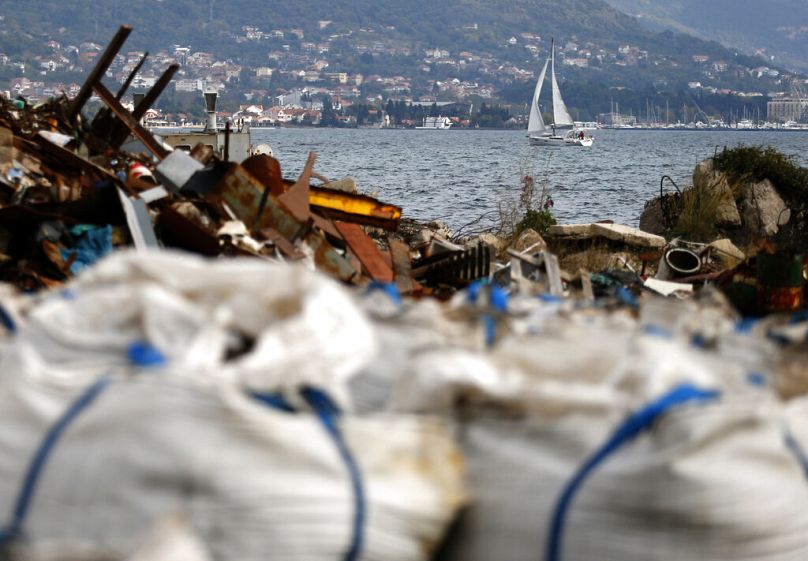The unprecedented level of lobbying seen in Brussels these days around revamped packaging waste rules is making some politicians strangely hesitant, and the EU risks staying attached to single-use packaging and a throw-away economy, Aline Maigret writes.
Our current approach to packaging in the European Union is unsustainable: almost all packaging sectors depend on single-use packaging.
This comes at a huge cost for society and the environment, while the current status quo also diminishes our collective ability to develop other alternatives.
Waste prevention approaches and reusable packaging, for example, provide excellent opportunities.
Many stakeholders call for ambitious reuse targets and provisions as the European Parliament is gearing up for a crucial vote to revamp European packaging rules through the Packaging & Packaging Waste Regulation (PPWR).
Will Brussels send a clear signal to everyone committed to switching to reusable packaging systems?
Time for transformational change
Morning commuters and roasted coffee lovers beware: 16 billion paper cups are used for coffee every year, which leads to the cut of 6.5 million trees, 15 billion litres of wasted water, and the waste of enough energy to power 54,000 homes for a year.
The production of single-use packaging materials (paper-based or other materials) involves high energy consumption, depletes natural resources, and releases greenhouse gases — and this is without mentioning health and societal issues.
In addition, materials needed to produce packaging are mostly imported from outside the EU.
Study after study proves we are transgressing planetary boundaries faster than ever, while at the same time, the production of packaging and associated waste has steadily grown over the past 20 years — with the EU seeing a record of 177 kg of packaging waste per person in 2020.
The time is ripe for structural and resilient change.
Making Europe switch from discarding to reusing
Packaging reuse systems allow us to break free from the conventional linear model of producing, using, and discarding.
Adopting reusable packaging systems — where packaging like a cup, food container, or bottle is conceived, designed, and placed on the market with mechanisms to ensure it is used many times by consumers instead of just once — can reduce the consumption of virgin materials, and it has the potential to reduce GHG emissions for most packaging options.
Examples already present in the market prove the benefits of reusable packaging go beyond environmental considerations: it provides new revenue streams, creates local employment, and retains value in our economy.
At this critical moment when Europe seeks to reduce its energy and material dependence on third countries, adopting such reuse systems can re-energise local economies by reducing both imports and reliance on global supply chains.
But make no mistake: reusable packaging must be scaled up and implemented across Europe. For this to happen, we need to build infrastructure where there is none, and time to implement it from scratch (or almost from scratch) in every town.
The Reuse Blueprint launched last week by Zero Waste Europe, in cooperation with civil society organisations, companies and European cities in five European countries through the Reuse Vanguard Project (RSVP), marks the start of true change.
The Blueprint is designed to provide a solid framework for municipal authorities, reuse operators, and system users (such as Ho.Re.Ca. businesses and consumers) to design and implement systems for reuse in the takeaway packaging sector for food and drinks.
It is currently being tested in cities like Aarhus, Barcelona, Berlin, Ghent, Haar, Leuven, Paris, Rotterdam, and Tallinn.
A strong signal from our political leaders
Going back to our morning coffee example, it’s not enough to have commuters from and to these cities access reusable on-the-go coffee mugs.
The big mainstream shift we need can ensure that the responsibility doesn't lie again with consumers; and that more circular options — such as reusable coffee mug systems with easy return points — are conveniently available to all. But for this to happen, we need concrete reuse targets in EU legislation.
There is substantial support for this transformation — from leading global brands and retailers to civil society organisations and academia.
Yet, the unprecedented (according to our European Parliament contacts) level of lobbying seen in Brussels these days around the PPWR is making a handful of politicians strangely hesitant, and the EU risks remaining attached to single-use packaging and a throw-away economy.
The focus is now on Members of the European Parliament, who will cast their votes this week.
Will they vote for reuse targets to drive the reuse transition in the packaging sector? Or, on the contrary, maintain the status quo and even damage existing national efforts by creating legal ambiguity? The ball is in their court.
Aline Maigret is Head of Policy at Zero Waste Europe, a European network of communities, local leaders, experts, and change agents working towards the elimination of waste in our society.
At Euronews, we believe all views matter. Contact us at view@euronews.com to send pitches or submissions and be part of the conversation.



